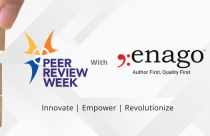Why Would Anyone Want to Be a Peer Reviewer?

Contributing to the Academic Community
Advocates argue that the contribution made by the peer review process to academic publishing is chronically undervalued.
Leveraging the desire of experienced reviewers to give back to the academic community, and the desire of younger researchers to take their first steps in the business, has allowed journal publishers to build a cadre of dedicated professionals who are willing to work for free (or, at least, for meager discounts) as a broader commitment to the quality of scientific research.
Critics, unsurprisingly, take a more acerbic viewpoint, with complaints of poor feedback to authors, sluggish turnaround times, the undeserved protection of anonymity, and increasing problems with fraudulent review practices. On that basis, why would anyone want to become a peer reviewer?
A Flawed System
For submitted articles or research papers that make it past the initial screening for suitability by the journal editor, the peer review has always been the biggest challenge and greatest frustration of the academic publishing process.
Rejection often comes with minimal feedback or guidance, or the submission is returned with a request to “revise and re-submit” with a list of edits that are so long that the author is often left wondering whether the effort is worth it, or whether he or she should try another journal. On the rare occasions that an author receives a notification of acceptance with no revisions required, he or she may sing the praises of the review committee, but normally peer reviewers are not held in the highest esteem.
In the world of Open Access publishing, this environment of low perceived value is further exacerbated by plans to introduce cursory reviews that only check for scientific soundness, leaving a more public review to the post-publication market.
In this context, the commoditization of peer review reduces the service performed to little more than fact checking.
A Valued Service
It is regrettable that an opportunity to engage in a productive dialog with experienced peers about the quality and potential contribution of a piece of research has been reduced in such a manner. We appear to have abandoned the time needed to review the academic quality of the work in favor of the need for increased productivity.
Proposals for payment are dismissed with such trite responses as: “They aren’t in it for the money,” which may be true, but still sends a negative signal as to the perceived value of the services being performed. After all, shouldn’t complaints about slow turnaround be met with more resources (assuming a high quality is being maintained) rather than instructions to work faster and run the risk of delivering lesser quality work?
An Uncertain Future
The industry has created its own problem by continuing to take advantage of the willingness of academics to trade unpaid labor for association with the prestige of a specific journal. As the individual workloads of those academics have increased, their availability and interest in continuing that relationship has diminished considerably, and journal editors are only just starting to come to terms with that reality.
For now, journal prestige rests on citation volume, but if the number of retractions continues to rise, and continues to cast aspersions on the peer reviewers who are assumed to have missed whatever error led to the retraction, the attraction of the profession will only continue to wane.
The onus is on the editors of all types of journal, open access and traditional, to ensure that a new generation of reviewers is being developed with the same commitment to quality as their predecessors. Achieving that objective will require drastic revisions of the current publishing model to a point where the value contribution of peer review gets the credit it has so richly deserved.









